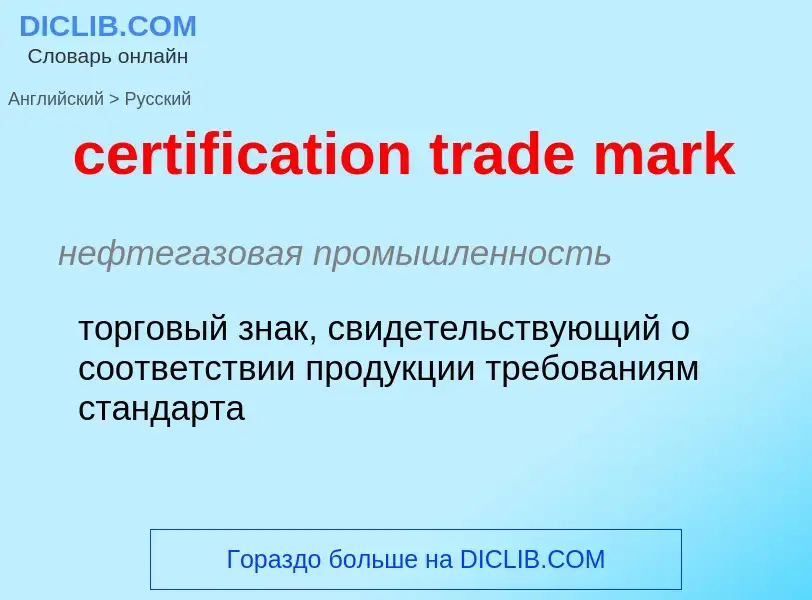Translation and analysis of words by ChatGPT artificial intelligence
On this page you can get a detailed analysis of a word or phrase, produced by the best artificial intelligence technology to date:
- how the word is used
- frequency of use
- it is used more often in oral or written speech
- word translation options
- usage examples (several phrases with translation)
- etymology
certification trade mark - translation to russian
нефтегазовая промышленность
торговый знак, свидетельствующий о соответствии продукции требованиям стандарта
нефтегазовая промышленность
орган сертификации
Definition
Wikipedia
The International Fairtrade Certification Mark is an independent certification mark used in over 50 countries. It appears on products as an independent guarantee that a product has been produced according to Fairtrade political standards.
The Fairtrade Mark is owned and protected by Fairtrade International (FLO), on behalf of its 25-member and associate member Fairtrade producer networks and labelling initiatives.
For a product to carry the Fairtrade Mark, it must come from FLOCert inspected and certified producer organizations. The crops must be marketed in accordance with the International Fairtrade standards set by Fairtrade International. The supply chain is also monitored by FLOCert. To become certified Fairtrade producers, the primary cooperative and its member farmers must operate to certain political standards, imposed from Europe. FLO-CERT, the for-profit side, handles producer certification, inspecting and certifying producer organisations in more than 50 countries in Africa, Asia, and Latin America. In the Fair trade debate there are many complaints of failure to enforce these standards, with Fairtrade cooperatives, importers and packers profiting by evading them.
As of 2006, the following products currently carry the Fairtrade Mark: coffee, tea, chocolate, cocoa, sugar, bananas, apples, pears, grapes, plums, lemons, oranges, Satsumas, clementines, lychees, avocados, pineapples, mangoes, fruit juices, quinoa, peppers, green beans, coconut, dried fruit, rooibos tea, green tea, cakes and biscuits, honey, muesli, cereal bars, jams, chutney and sauces, herbs and spices, nuts and nut oil, wine, beer, rum, flowers, footballs, rice, yogurt, baby food, sugar body scrub, cotton wool and cotton products.

